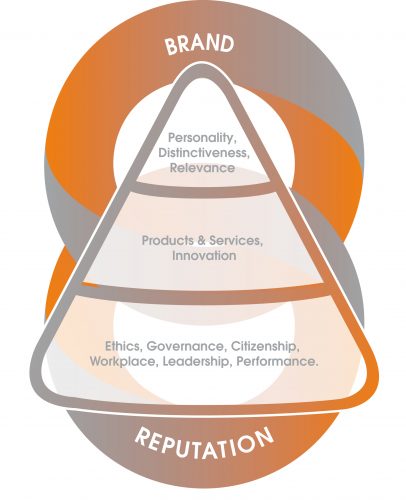
Post Law. Where morality trumps legality.
We’ve entered what I’m calling the post-law period, where simply following the letter of the law isn’t enough to protect corporate reputation and brand. Companies are increasingly expected to do what customers and wider stakeholders believe is morally right i.e. follow the ‘spirit of the law’ – to do what the law intended, not find ways to circumvent it.
Enlightened companies are waking up to this. Tech Company Just Eat makes a virtue of paying UK Corporation and value-added taxes – in contrast to its contemporaries such as Uber and Amazon which use loop holes to minimise theirs – is one example. MPs publishing their personal tax returns, is another.
Corporations are grappling with these new found expectations of openness and transparency – just how far should a Company go in being open and transparent? A Tovera study among key opinion leaders also found the single biggest issue of our time is believed to be inequality i.e. the huge gap between the richest and the poorest in society.
It is in that context that Apple finds itself trying to justify what most of us who know about it now see as the unjustifiable – paying effective 0.005% tax in 2014 from its entire EU revenues. Apple has followed the letter of the law, but certainly not the spirit.
In amassing over $200 Billion off-shore, Apple has essentially given two fingers to US and EU tax agencies. It got away with this because despite the tax arrangements that enabled it to amass this cash, consumers didn’t seem to care much – they still bought Apple products in their millions, at one point last year making Apple the most valuable company on the planet.
Things seem to be changing.
The backlash against Apple on social media has been loud and sometimes ferocious. The mood in the media (in the UK and EU at least) leans towards supporting the EU’s demand that Apple pays back €13 billion in tax. Other national governments in the EU are also supporting the tax demand. Apple appears to have lost some of the support it previously enjoyed among business leaders and media and is now on the back foot. (Apple does, however, still enjoy strong support among business leaders in the USA.)
Apple’s reaction to the EU tax demand was to then state it would look to repatriate its cash to the USA. The EU intervention seemingly giving the US tax authority a potential bonanza. This announcement has also being viewed cynically by some EU based commentators.
I think we are seeing a tipping point in the rise of Apple’s brand dominance. It reminds me of Tesco back in 2011: 20 years of unbroken growth and a global success story unraveled after it lost sight of what mattered most to its customers and wider stakeholders – it was seen as aggressive and using its muscle purely to drive profits rather than for a greater good. It has taken Tesco 5 years to get to a stage where it is recovering its reputation. Could the same now happen to Apple?
At the moment, consumers are not directly suffering from Apple’s tax arrangements, sales of the iPhone 7 seem to have been as successful as expected. However, I do sense that Apple has drawn once too often from the reservoir of goodwill among other stakeholders. And once a company loses support from governments, regulators and key opinion leaders, the mood changes and it doesn’t take long for consumers to follow.
If Apple is to avoid brand damage that ultimately leads to a decline in revenues, it must act fast to “do the right thing”. My view is that this has to involve a settlement on the EU tax demand and then working quickly to reassess its tax arrangements in the markets where it makes its revenues. What a positive turnaround it would be if Apple were to lead by example in this way.
Failure to do so could see Apple begin to lose its dominance and status as a global power brand. It’s time for Apple (and others like it) to start following the spirit of the law, not just the letter of the law in the markets in which it operates. Maybe then we can learn to love Apple again – as a company that does good, not just one that has good products.
……………..
Spencer Fox is a brand and reputation consultant and has advised companies such as AstraZeneca, ITV, L’Oréal and Tesco. He is a founding partner of Tovera Consulting – a brand and reputation research, measurement and advice company that helps companies build both strong brands and reputations.

